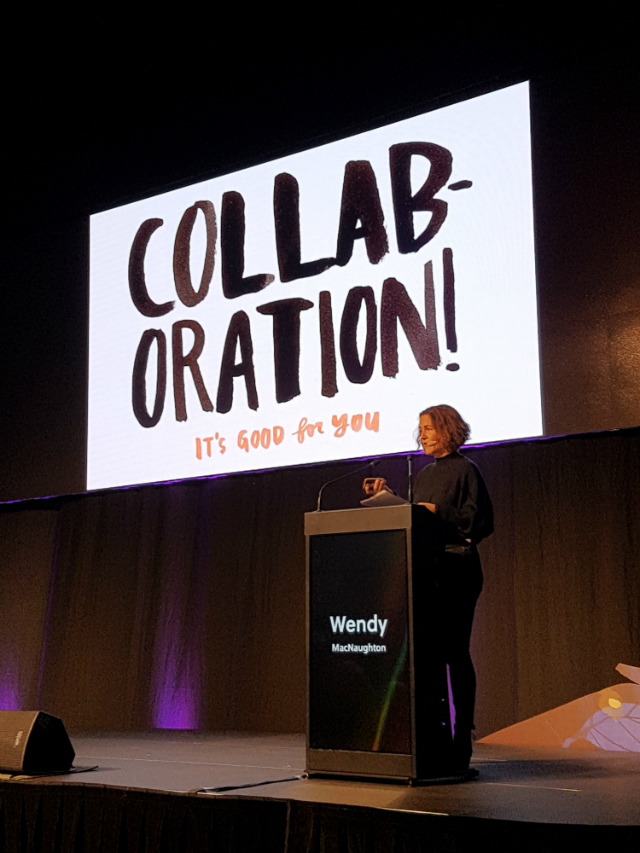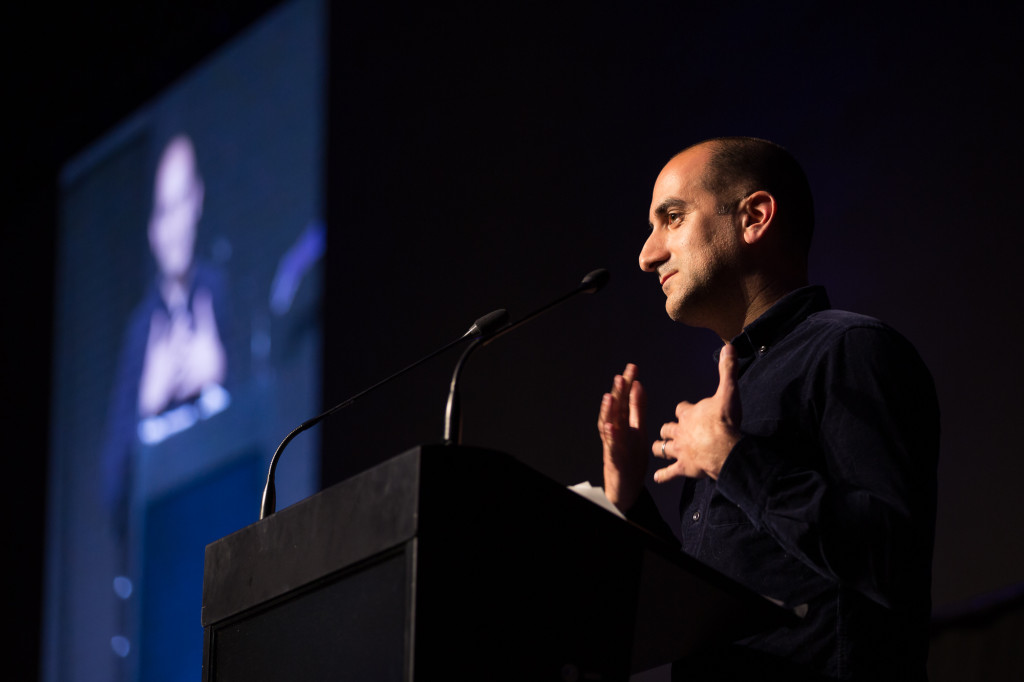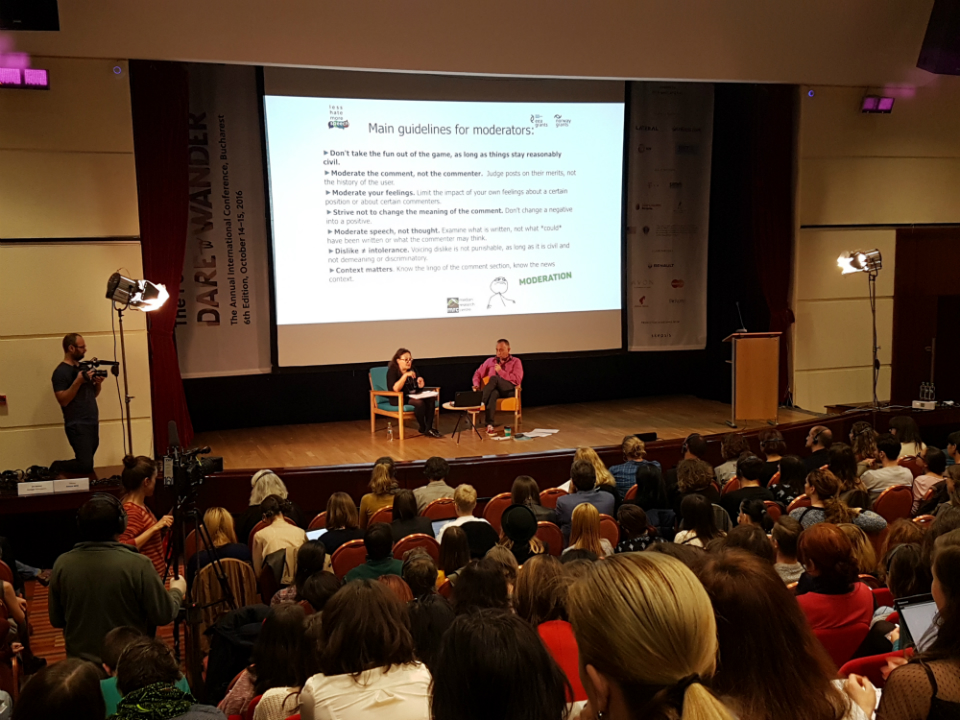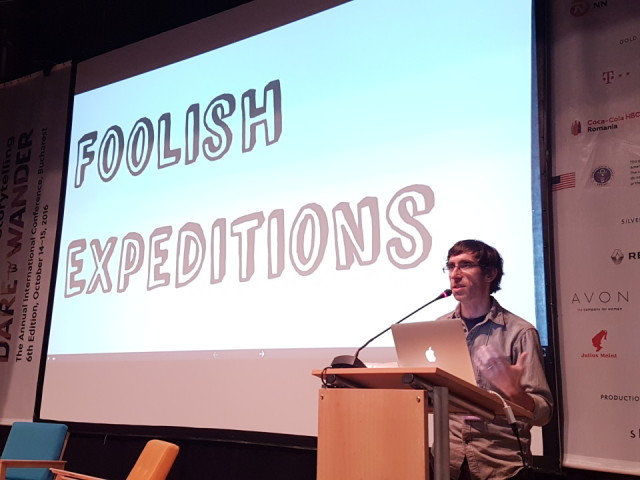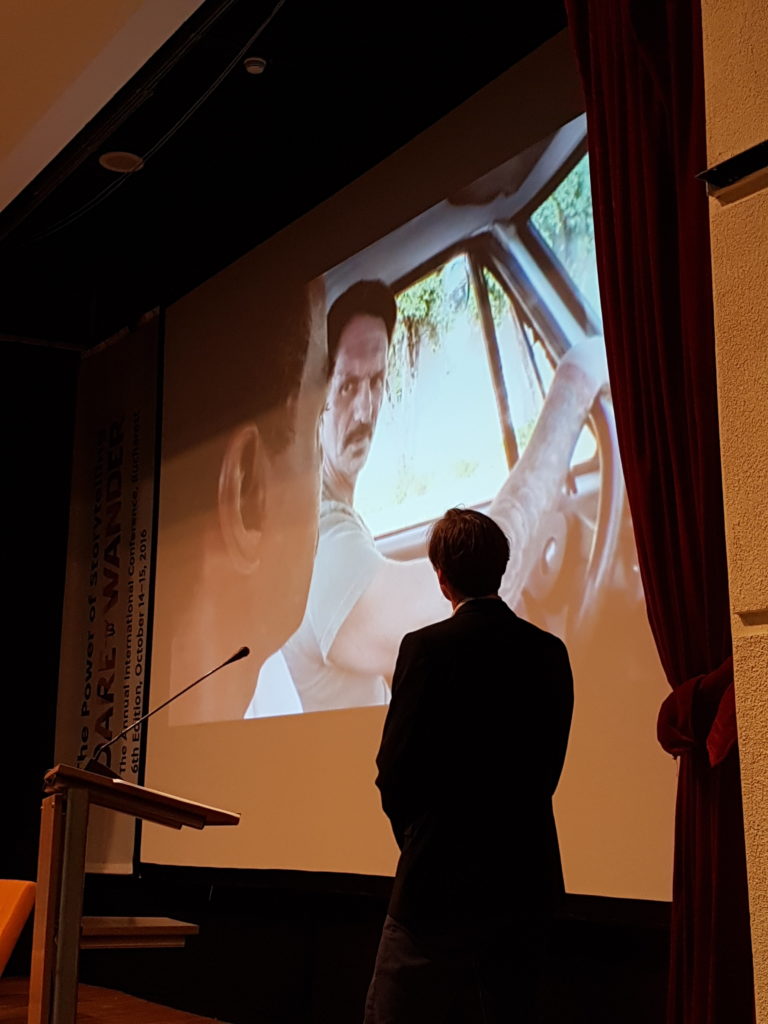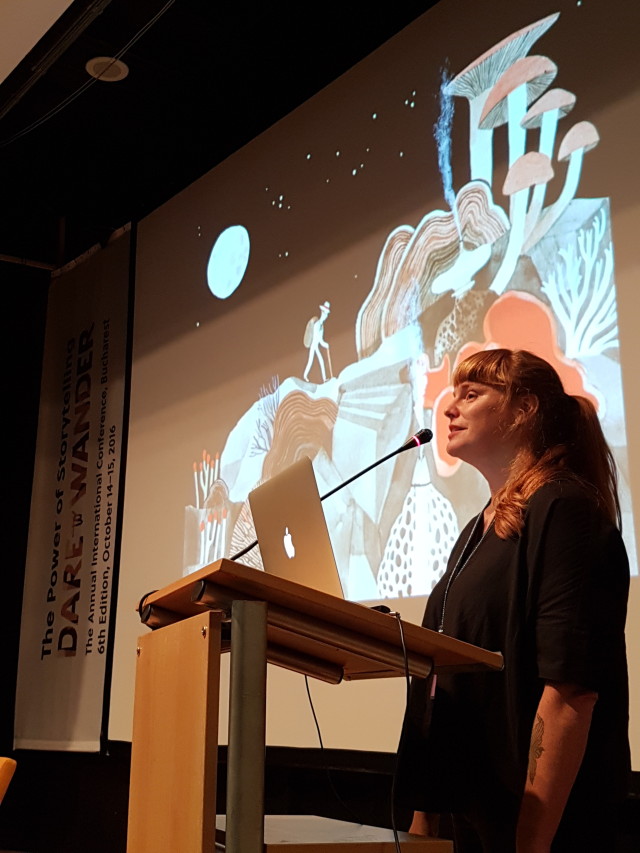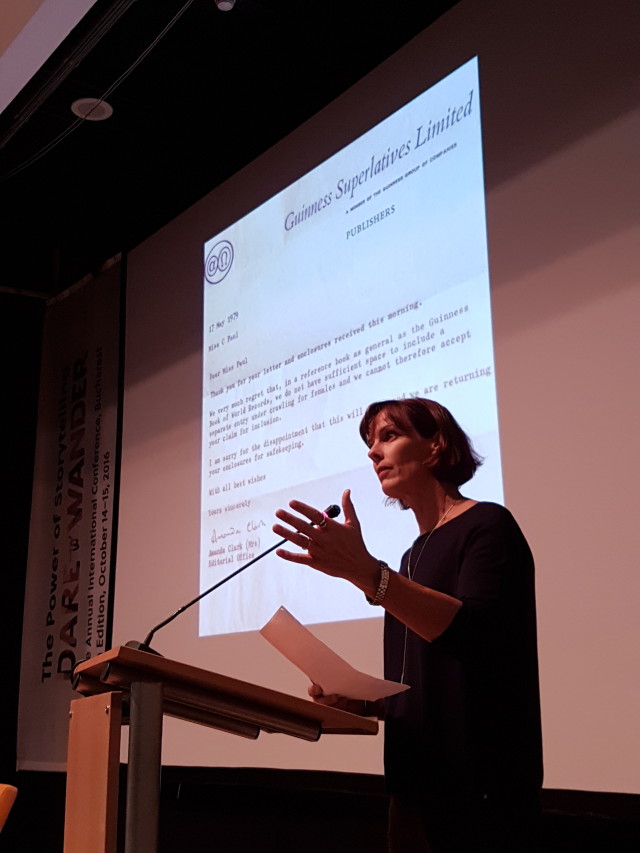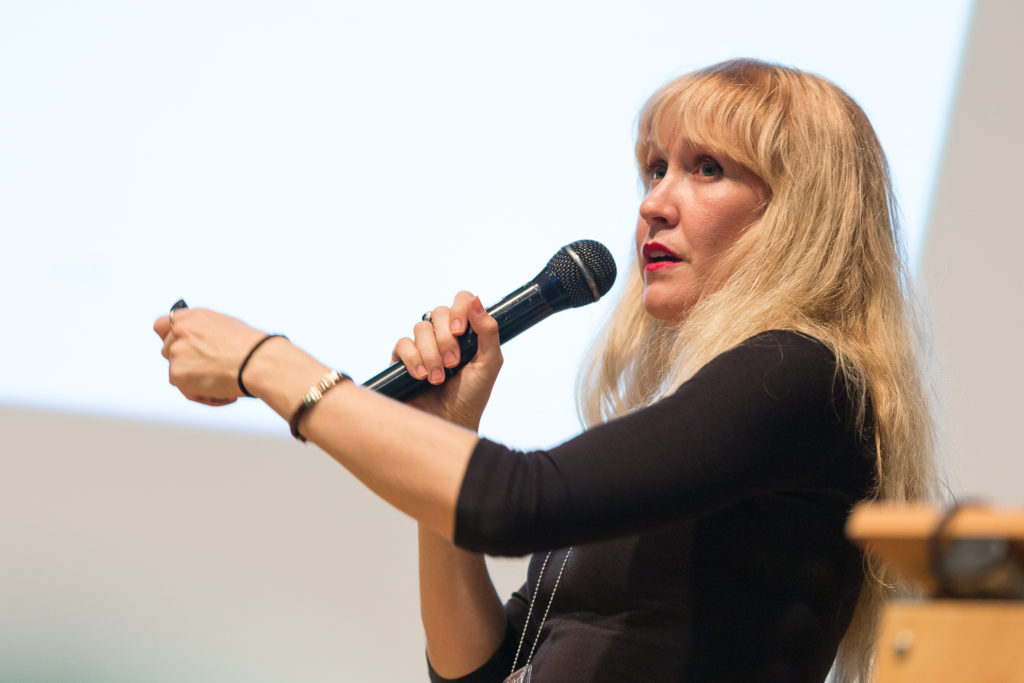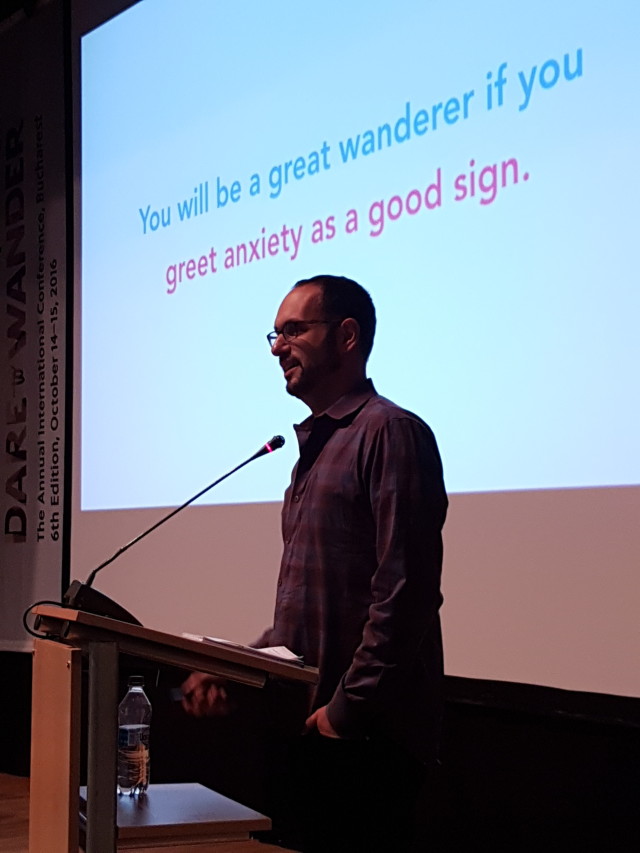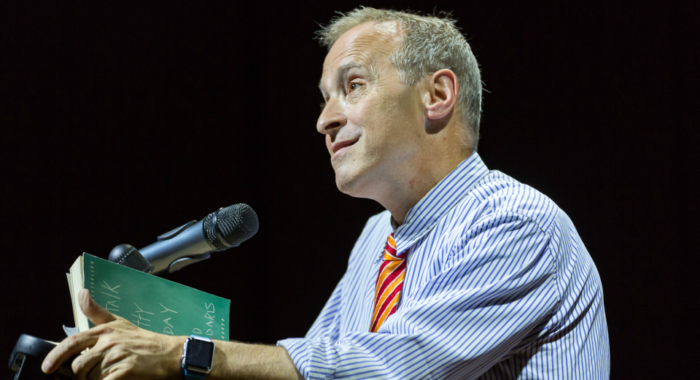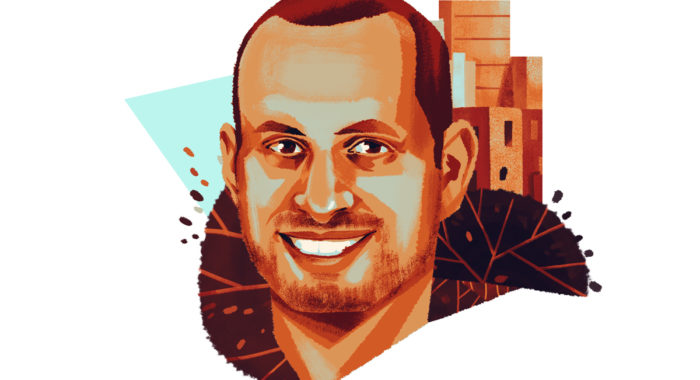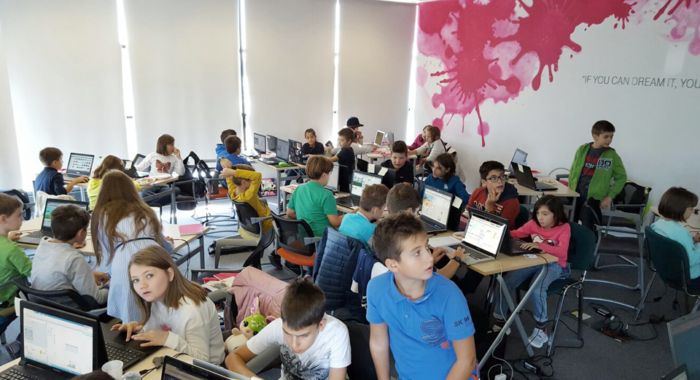Over 400 people from 17 countries gathered In Bucharest on October 14-15 to expand their minds and fill their souls with wisdom and inspiration shared by our 13 amazing speakers – bestselling writers, journalists and poets, visual artists, musicians, audio magicians and story innovators.
Here’s what we learned from them:
1. Seek the universal truth in every story you write.
Cheryl Strayed offered the perfect opening to #Story16 by talking about inner and outer journey, exploring the wild as well as one’s inner world and finding the courage to put together our thoughts, notes, and experiences and create something others can relate to.
You have to have something to say, some sense of the meaning of your story that isn’t just about you, that transcends yourself. I didn’t write “Wild” because I thought my hike was interesting to anyone else but my friends or because I thought my love for my mom was more tremendous than anyone else’s loss. But because I felt that the story of my journey would resonate to others and to what it means to be human. In every story I write I try to tap into that deeper mission of seeking truth.
The interesting thing about writing a memoir is all you have to do is pay attention to your life. Life offers all the metaphors and symbols you need.
Dare to wander is pretty much the theme of my life, and certainly the theme of my book “Wild”. Often when we think about dare to wander we think about the journey, the escape, leaving the past behind. My hike was about that, but it was also about returning to who I was. I think that’s the purpose of the journey, we are born whole and we need to find our way back to that, to being able to trust our intuition, to trust who we are.
2. Step out from your solo work and grow through relationships.
Second on stage, Wendy MacNaughton shared from her experience in collaborating with others on her projects. She busted the myth of the lone genius and instead dared everybody to go out of their bubble and reach out to those around them, because “it is through relationships, through collaboration, that we grow as humans and as professionals”.
Dare to reach to other people and start thinking about collaborating. It makes our work more interesting and our worlds bigger.
Sometimes we need to go inside, go through a solo passage and then come out. And sometimes we need to work with other people.
When we dare to step our from our solo work, to experiment more, to challenge more, we make things that we never thought we could make. And it gets our work out to an exponential wider audience. And we grow. We grow through relationships.
3. Keep your eyes open.
We live in a world full of stories worth telling. If you keep eyes open, far more complicated and beautiful and surprising things than our imagination wants to accept.
Jon Mooallem then talked about accepting complexity and using it to tell better stories:
The universe has a way of scattering the beautiful things we imagine. Once the panic turns off, look for every good opportunity still standing there.
When you’re doing this kind of journalism you’re throwing yourself into a world, allowing yourself to feel lost in it, and miraculously getting found around deadline.
As storytellers, we have powerful imaginations, we tell ourselves stories that allow us to do our work. It’s a gift, but it’s also a burden. Our imagination can turn against us, it can limit our sense of the world instead of expanding it.
We live in a world full of stories worth telling. If you keep eyes open, far more complicated and beautiful and surprising things than our imagination wants to accept.
4. How to turn stories into music
Colin Meloy feels songwriting stands apart from other writing forms. He shared the process he went through in order to find the voice that was true to himself and a manner of turning stories into music.
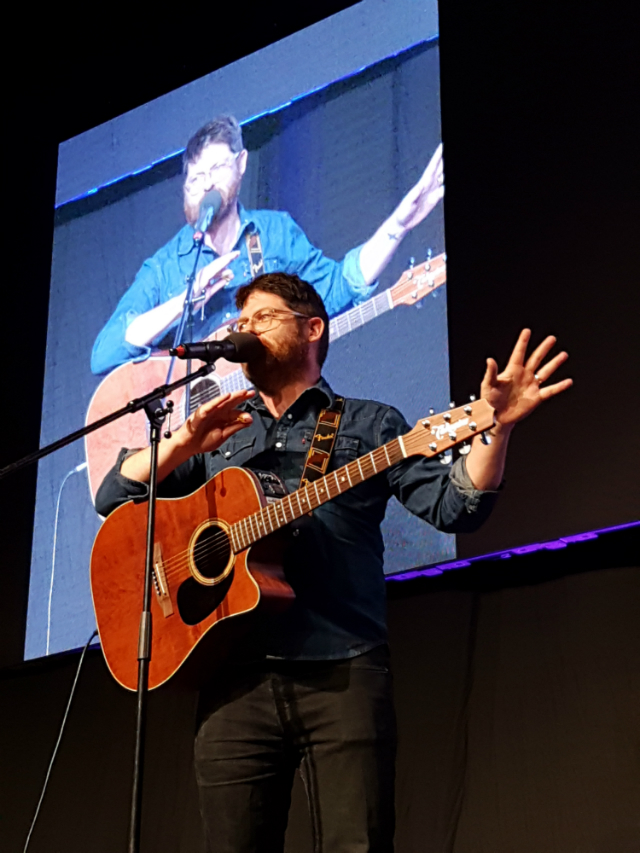
Songwriting is a lot like drifting, there are no set rules, you have your own voice, you’re following your own waymarks, you are interpreting waymarks and sort of following them blindly and hoping that they’re good and that people will like them.
To me writing a novel is like moving rocks from one part to another, it’s tremendous labour, but you know exactly what you’re doing and where it probably should go, but it’s taking a lot of time. While songwriting looks like unemployment, standing couch and playing guitar.
5. Moderate speech, not thought.
Journalist Cătălin Tolontan and researcher Marina Popescu had a debate about hate speech over the internet and how to communicate with the public when its interaction with journalists is higher than ever before. They drew their conclusions after moderating 700.000 comments on tolo.ro and gsp.ro, together with their team.
Journalism has always needed feedback from the audience in order to find the balance between the public interest and the public’s interests, the former referring to its greater good and the latter to the things they want to find out more about. (Marina Popescu)
This is the great advantage of written media: not having a camera pointed at people, they are able to express their emotions at a different intensity.
Tolontan shared some guidelines for moderating comments at gsp.ro, some of which are: moderate the comment, not the commentator; strive not to change the meaning of the comment; moderate speech, not thought.
All publishers fear that if you moderate comments, the numbers will go down. But what we found is that they actually went up and the number of comments requiring moderation goes down. Slowly, but it does.
What I have learned from this communication is the following: asking those who comment to keep an open mind, we have also become more open and tolerant towards those we write about.
Journalists cannot change people, but they can change the interaction with their public,an analysis of hate speech comments shows. #story16
— Luiza Ilie (@LuizaIlie) October 15, 2016
#story16 @tolontan The hate charged comments online can affect even the strongest, including sport heroes used to “fight against the world” pic.twitter.com/vtpSFwmpiJ — Andra Sonea (@andrasonea) October 15, 2016
6. Take control of your narrative.
Journalist Dvora Meyers talked about the challenge of writing about niche topics and groups for broader audiences, without oversimplifying them.
#story16 With humour and intelligence @DvoraMeyers translates for us her love for gymnastics, so unusual for a girl growing up Orthodox Jew pic.twitter.com/lQYnsDZa6Y
— Andra Sonea (@andrasonea) October 15, 2016
I came to think about gymnastics through my experience, being a young gymnast who wants everybody to love it as much as I did. Gymnastics was a thing I wanted to spread to the masses like the gospel.
We exist in a world and we want to see ourselves represented. When I look back at that desire I had for people to understand and embrace the sport I loved, gymnastics, I realize what I wanted was for people to understand me.
Communities can shape narratives. No one is going to represent you the way you want to be represented. You have to take control on that.
7. If you keep going, the reason will appear.
Tim Howard took us on the daunting but adventurous journey of unraveling a story through endless curiosity, perseverance and constant questioning, even where apparently there is none. Following the trail of breadcrumbs from Calgary, Canada, to concentration camps in Chifu, a surprising narrative unfolds.
We want the listener to be kind of disarmed and at a certain point flip back like a turtle and experience the feelings.
Many of our best stories start from a place of failure and the plan we had was totally wrong, the idea we had was wrong and we just go from there.
.@replyall‘s @ttimhoward on wandering through stories. #story16 pic.twitter.com/kPImDiYf2z
— ((wendymacnaughton)) (@wendymac) October 15, 2016
It’s really important to us to get out of our comfort zone. And we look for a lot ways to do that. One thing that we do is that even if we’re producing stories on a constant basis, what I call a hamster wheel, we have a parallel track with the stories that ask questions which are totally confusing.
The theory is maybe if we keep going the reason will appear. When we know the answers to questions, we find other questions.
8. If you stay open and patient, a story will emerge.
Brian Lindstrom talked about the privilege and responsibility of telling someone else’s story and about how he pursued his dream of doing meaningful movies, despite the financial difficulties he encountered along the way.
To truly understand kindness and its transformative power it’s necessary to go the opposite way. Sometimes films have to dwell on a pretty negative place and honor people dealing with some pretty horrific events, and I think Alien Boy did that.
If you stay open and patient, a story will emerge, it always does. It may not be the story you thought it was when you started, but it may better and more surprising than that.
I believe in stories, in the fact that we all have a story and in the alchemy that happens when we share them.
9. Trust your instincts as you explore your inner world and the outdoors.
Carson Ellis shared her life odyssey, which started in a wealthy New York suburb leading her to Portland, Oregon, and shared some advice to illustrators that can be applied to any creative professions:
Wandering is straying off a path that is comfortable.
Wander around the weird inner world of your psyche and draw what you see.
Wander around the world and draw what you see.
Wander off the creative path that you’re on and onto another one.
This is how I dare to wander now: to wander away from money and responsibility and do art for art’s sake.
10. Find your niche and your community.
Caroline Paul shared some of the tips she’s learned living an adventurous life and how she applied them to her writing.
Find your niche, find a story that no one else can tell, find that space to occupy that really resonates with you.
Make sure you have good adventure buddies. The writing life is dark, there’s lots of bumping into walls and losing your way and many people will not believe in you. Try to belong to a community that believes in you.
Be resilient. Pick yourself up after a failure and go forward.
11. You can’t draw with your eyes closed. It’s just a first draft, like in any creative work.
Instead of answering the question ‘Why is poetry so important?’ poet Tara Skurtu managed to show the audience through her dynamic speech and exercises, that poetry is fun.
Everyone is a poetry person. They are a form of storytelling.
Every poem creates its own rules and has its own logic.
We learn so much about learning and writing and literature from kids.
Poetry uses language to describe things that cannot be said in words. It deals with feelings.
Tara left the audience with a challenge in order to prove that poetry is indeed accessible to anyone. Those who accept it need to write a poem about a moment in which they were transformed and send it to the email address sendtarapoetry@gmail.com. She will select three which will be published on the conference website.
12. Change your mindset and go beyond safe approaches.
Marketer Jonah Sachs shared three of the lessons he’s learned from people who managed to depart from what they know and leave the beaten path.
You can be a great wanderer if you greet anxiety as a good sign, a sign that change is coming. Creativity is also about taking a challenge when there is no map, it’s about wandering, about being flexible and thinking and acting in different ways to get to different destinations.
You can be a great wanderer if you resist distraction with love. We reach for distractions when we feel fear and boredom. But if we resist temptation and stay in the flow zone, we can continue working.
You will be a great wanderer if you strive to be an explorer and not an expert. When you are wandering, you know you are a beginner, in state of creativity.
13. Don’t get killed, don’t fuck up, remember to have fun.
By talking about her journey as a woman reporter in a male dominated world, Jacqui Banaszynski taught us to dream big, but work hard to reach those dreams, be brave and not give up.
#story16 @JacquiB Jacqui’s stories make me appreciate the courage and resilience of professional women ahead of me. Search &read her stories pic.twitter.com/U1xY1330y1
— Andra Sonea (@andrasonea) October 15, 2016
She then closed #Story16 with a list of daring advice she gathered from all our past speakers. Here are a couple of them:
Dare to do the things you’re most afraid of.
Dare to be better.
Dare to have fun.
Dare to be yourself.
Dare to tell the truth, however messy or broken.
Dare to ask the questions you’re afraid to ask.
Dare to walk away from what’s no longer working.
Dare to start where you are.
Dare to have an idea, pack your bags, get on a plane, ask a question, go back home and write.
Dare to open your mind, heart and eyes.
Dare to be storytellers.

